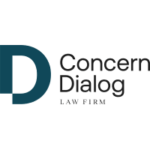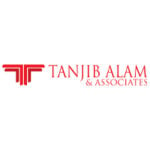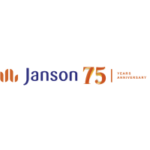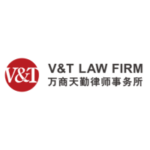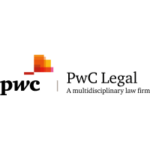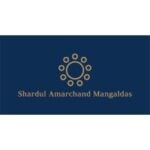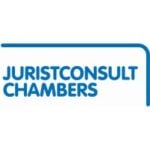-
What are the main methods of resolving disputes in your jurisdiction?
The main methods of resolving commercial disputes in Nigeria are Litigation and Alternative Dispute Resolution Mechanisms such as; Arbitration and Mediation.
Parties may contract to resolve their disputes through Arbitration or Mediation, and the Court may also order parties to explore an amicable settlement of a dispute or appoint a mediator for the parties.
The High Court (Civil Procedure) Rules of the High Court in various states in Nigeria mandate parties to make use of alternative dispute resolution mechanisms in resolving their disputes as a pre-condition to commencing litigation, thereby resulting in an increase in the number of disputes now being resolved by mediation and negotiation.
Different court rules mandate that new suits must be screened for alternative dispute resolution and as such where the registry of the court identifies a good case for alternative dispute resolution, the parties are referred to the multidoor court house of the High Court where the suit is filed.
Where parties resolve their dispute through a court ordered settlement or with the support of a court appointed mediator, the terms of settlement becomes a consent judgment that is enforceable like any other judgment.
-
What are the main procedural rules governing litigation in your jurisdiction?
The procedural rules governing commercial litigation in Nigeria include the Constitution of the Federal Republic of Nigeria 1999 (as amended), the Civil Procedure Rules of various Courts in Nigeria, the Evidence Act which governs the admissibility and presentation of evidence in Nigeria, the Limitation laws of the state where a suit is filed, and the governing law of the subject of the suit as applicable. For example, the Companies Proceedings Rules and the Companies Winding-Up Rules apply to proceedings taken out or arising out of the Companies and Allied Matters Act 2020 and winding up proceedings respectively. The Asset Management Corporation of Nigeria (AMCON) Practice Direction as well as the Federal High Court (AMCON) Proceedings Rules 2018 also apply to proceedings relating to claims filed by or against AMCON.
-
What is the structure and organisation of local courts dealing with claims in your jurisdiction? What is the final court of appeal?
Nigeria has a hierarchy of courts. Depending on the subject matter and the monetary value of the claim, suits may be initially instituted at the Magistrate or District courts, the High Courts of the various states or the Federal High Court. However, some commercial matters are within the exclusive jurisdiction of specific courts. For example, Section 251(k) of the Constitution of the Federal Republic of Nigeria, 1999 (as amended) provides that the Federal High Court has exclusive jurisdiction over aviation and maritime disputes, irrespective of the value of the claim.
The High Court of a State determines an appeal against a judgment of the Magistrate Court, while an appeal from the Tax Tribunal will be heard by the Federal High Court. The State High Courts and the Federal High Court are of concurrent jurisdiction and appeals from the decisions of these courts go to the Court of Appeal.
Furthermore, appeals from the Court of Appeal go to the Supreme Court of Nigeria, which is the apex court in Nigeria. The judgment of the Supreme Court is final and binding, and may only be overruled by the Supreme Court itself.
-
How long does it typically take from commencing proceedings to get to trial in your jurisdiction?
The duration of a matter from proceedings to trial is not regulated by law in Nigeria. However, the various civil procedure rules of the various courts have specific timelines for the performance of certain actions preceding the commencement of trial. For example, under the High Court of Lagos State (Civil Procedure) Rules 2019, a Defendant has forty-two (42) days after being served with the claim to file a statement of defence, while the Claimant has fourteen (14) days to file a reply to the statement of defence. After pleadings have closed, parties will proceed to a case management conference where the case management judge decides (within three months) if the matter should proceed to trial or be referred to the multi-door courthouse. The period from the commencement of an action to trial (in cases where there are no technical objections) should ordinarily not exceed approximately six months. However, late filing of court processes and congested court dockets may result in cases not being set down for trial for up to nine months or more. Furthermore, trial may not proceed on the date of fixture due to congested dockets and it is not unusual for a period of one year to elapse between commencing proceedings and actual trial. In recent times, amendments to various civil procedure rules have included provisions that seek to curb unnecessary delays and ensure speedy adjudication of disputes. The courts also penalise parties and counsel for undue delay by awarding costs in favour of the opposing party or in favour of taxpayers.
-
Are hearings held in public and are documents filed at court available to the public in your jurisdiction? Are there any exceptions?
The Constitution of the Federal Republic of Nigeria provides that hearings must be held in open court accessible to the public, except where it is necessary for the preservation of public safety, public order, public morality, the welfare of persons under the age of eighteen (18), the protection of the private lives of the parties, etc.
Documents filed in court proceedings are public record and any member of the public can apply to court to search its files upon payment of the prescribed fees [usually an insignificant sum], and obtain certified copies of the processes. However, in practice, the court exercises the discretion to approve or refuse an application by a member of the public for the records of the court.
-
What, if any, are the relevant limitation periods in your jurisdiction?
Limitation periods in Nigeria differ by subject matter and are primarily governed by the laws of the various States of the Federation. There is also a Limitation Act, which applies to the Federal Capital Territory (FCT). Therefore, there are no uniform limitation periods across the states in Nigeria except Lagos and the FCT which prescribes six (6) years for simple contracts, three (3) years for tortious actions related to claims for damages for negligence, slander, breach of duty of care or nuisance, and twelve (12) years for contracts under seal and land disputes (Lagos however expanded the limitation period to twenty years for actions commenced by a state authority for recovery of land). Most States have a five or six-year limitation period for simple contracts. Claims arising from a deceased person’s personal estate have to be filed within twelve (12) years, while actions against public officials or seeking judicial review of administrative action are to be filed within three (3) months of the occurrence of the cause of action.
However, there is no time limit for bringing an action for the enforcement of fundamental human rights.
-
What, if any, are the pre-action conduct requirements in your jurisdiction and what, if any, are the consequences of non-compliance?
Many of the civil procedure rules of the various state High Courts require parties to explore an amicable settlement of a dispute before instituting an action. For example, the High Court of Lagos State (Civil Procedure) Rules 2019 provides that parties file a pre-action protocol form with supporting documents to show that settlement was attempted, but failed. The registry of the court is required to refuse to accept for filing, originating processes that do not meet the pre-action protocol requirements.
Additionally, most enactments establishing government agencies or departments provide for the service of a pre-action notice before such agencies or departments can be sued in an action. The length of the notice depends on the Act establishing the agency and it varies between one to three months. This requirement is mandatory and is a condition precedent before initiating any action against such government agencies or departments. Failure to issue a pre-action notice in circumstances where it is required renders a suit incompetent. In these cases, the pre-action notice is a condition precedent for a court to assume jurisdiction over the suit.
-
How are proceedings commenced in your jurisdiction? Is service necessary and, if so, is this done by the court (or its agent) or by the parties?
Proceedings are commenced by preparing and filing any of the following four originating processes along with relevant accompanying documents: 1. writ of summons; 2. originating motion; 3. originating summons; and 4. petition The choice of originating process to be used is dependent upon the nature of the suit or the cause of action. For example, the High Court of Lagos State (Civil Procedure) Rules 2019 provides that writ of summons shall be the form of commencing all proceedings subject to the provisions of the rules or any other law requiring proceedings to be commenced otherwise by writ. The writ of summons is commonly used to commence a contentious action where the facts are likely to be disputed by the parties. Under the High Court of Lagos State (Civil Procedure) Rules 2019, a writ of summons is to be filed and served along with the following: a statement of claim; a list of witnesses to be called at the trial; written statements on oath of the witnesses except witnesses on subpoena; a list of documents to be tendered during the trial and copies of every document listed; a pre-action protocol form 01 with necessary documents. Similar provisions will also be found in the High Court rules of the other states in Nigeria.
The Federal High Court rules do not require a pre-action protocol form to be filed alongside a writ, but require a Plaintiff to file an affidavit of non-multiplicity of actions on the same subject matter. Originating motions are used to commence actions where a law or rules of court makes provision for its use or where a statute provides that an application may be made but does not stipulate the specific mode of commencement. It is often used for the enforcement of fundamental rights and is the generally accepted mode of application for prerogative and special orders or writs like judicial review, mandamus, certiorari, habeas corpus etc. Originating Summons are generally used for commencing non-contentious matters, particularly where the action involves an issue of construction of any written law or any instrument made under any written law or of any deed, will, contract or other document or some other question of law. An originating summons must be supported by an affidavit. Actions can only be commenced by way of a petition where a particular rule or law stipulates its use. It is mainly used in actions for winding up of companies, electoral matters and in matrimonial proceedings.
Service is necessary and intrinsic to the commencement or continuity of a suit. It is a condition precedent for a court to exercise jurisdiction over a matter. Failure to serve the originating processes on all the parties involved will render a suit incompetent and robs the court of jurisdiction to adjudicate over a dispute. Under the High Court of Lagos State (Civil Procedure) Rules 2019, the writ of summons is to be served within six months from the date of the issuance and if it has not been served within that period, it may be renewed for a further three months on not more than two occasions. No writ can be valid for more than twelve months from the date of first issuance. The various rules of courts prescribe how service of processes is to be effected. Under the High Court of Lagos State (Civil Procedure) Rules 2019, service of originating processes is to be effected by an agent of the court such as the sheriff, deputy sheriff, bailiff, special marshal or other officers of the court or any other person appointed by the chief judge as a process server.
-
How does the court determine whether it has jurisdiction over a claim in your jurisdiction?
The Constitution of the Federal Republic of Nigeria 1999 (as amended) as well as the High Court Laws of each of the States establishing the courts delineate the jurisdiction of the courts to entertain a dispute.
The basic principles that determine whether a court has jurisdiction are stated in the case law of Madukolu v Nkemdilim (1962) SCNLR 341 as follows: 1. the court is properly constituted as regards numbers and qualifications of the members of the bench and no member is disqualified for one reason or another; 2. The subject matter of the case is within the court’s jurisdiction and there is no feature in the case which prevents the court from exercising its jurisdiction; 3. The case comes before the court initiated by due process of law, and upon fulfilment of the conditions precedent to the exercise of jurisdiction. Where any of the considerations is lacking, the court will not assume jurisdiction over a claim.
The Constitution clearly delineates the jurisdiction of courts in line with the subject matter of dispute. For instance, Section 251 of the Constitution gives the Federal High Court exclusive jurisdiction over disputes involving the Federal government and its agencies, disputes connected to taxation of companies and persons subject to Federal taxation, disputes arising from the operation of the Companies and Allied Matters Act or any Federal enactment, bankruptcy, insolvency, disputes pertaining to banks and other financial institution, excluding disputes between a bank and its customers.
Section 254C of the Constitution also gives the National Industrial Court (NIC) exclusive jurisdiction over disputes relating to labour, industry and employment.
The High Courts of various states have jurisdiction over disputes that do not fall within the exclusive jurisdiction of the Federal High Court and National Industrial Court, while the Court of Appeal has the jurisdiction to hear appeals from the High Court of the thirty-six States of the Federation, the Federal High Court and the National Industrial Court.
The Supreme Court of Nigeria has original jurisdiction to hear disputes between the Federal and State governments or between State Governments and also hears appeals from the Court of Appeal. For matters within the purview of the State High Court, jurisdiction is exercised territorially i.e. each state exercises jurisdiction over disputes within the state/judicial division of the court.
-
How does the court determine which law governs the claims in your jurisdiction?
The courts will determine the laws applicable to an action before it, by particular reference to the subject matter of the action. For example, if the subject matter of the action is a winding up or receivership, the court seized of the action will apply the relevant provisions of the Companies and Allied Matters Act and the Winding Up Rules to the action. The courts are also empowered to apply other laws such as the constitution, statutes, rules of court, practice directions and judicial decisions relevant to the subject matter of the action. Generally, the law that will apply to any claim is the Nigerian law dealing with the subject matter of the claim. However, parties sometimes by their contracts, determine the type of law applicable to their claim. Parties may decide that Nigerian law will apply or that some other foreign law will apply to their disputes. The court will give effect to the parties’ choice of law and will accordingly apply such law in the determination of the claims. It should be noted that foreign laws and judgments are not binding on Nigerian courts; they are only of persuasive effect and Nigerian courts will apply the rules of international law provided they are not in conflict with local law or public policy.
-
In what circumstances, if any, can claims be disposed of without a full trial in your jurisdiction?
A claim may be disposed of without a full trial either through a summary judgment application, an application for a judgment on admission, a judgment in default of a defence, or through any other procedure provided by the various rules of court. Examples of the summary judgment procedure include judgments based on the admission of the opposing party under Order 21 Rule 4 of the High Court of Lagos State (Civil Procedure) Rules 2019; undefended list procedure under Order 35 of the High Court (Civil Procedure) Rules 2018, Abuja; application for summary judgment procedure under Order 13 of the High Court of Lagos State (Civil Procedure) Rules 2019 and under Order 11 of the High Court (Civil Procedure) Rules 2018, Abuja; summary judgment for account under Order 4 Rule 5 and Order 12 Rule 1 of the High Court of the Federal Capital Territory (Civil Procedure) Rules 2018 and Order 14 Rule 1 of the High Court of Lagos State (Civil Procedure) Rules 2019; summary judgment for possession of landed property occupied by squatters or without the owner’s consent under Order 57 of the High Court of Lagos State (Civil Procedure) Rules 2019 and Order 60 of the High Court of the Federal Capital Territory (Civil Procedure) Rules 2018. Other states have corresponding provisions in their rules of court. The other circumstance where judgment may be given without a full trial is where a claim is disposed of because of some default or omission of the Defendant in fulfilling a requirement under the rules of court. For example, under Order 22 of the High Court of Lagos State (Civil Procedure) Rules 2019, a court can give judgment if the Defendant fails to file pleadings. Parties may also resolve disputes which have already been commenced in Court amicably and thereafter file their terms of settlement and same will be entered as a consent judgment without a full trial.
-
What, if any, are the main types of interim remedies available in your jurisdiction?
Interim remedies are granted upon the fulfilment of certain conditions provided under the law. Such interim remedies include: 1. interim injunctions; 2. interlocutory injunctions; 3. mareva injunctions; 4. orders to disclose; 5. orders for production of documents; 6. orders for inspection, detention and preservation of property; 7. security for cost; 8. orders to deposit the value of the claim in an interest yielding account, and 9. anton pillar orders.
-
After a claim has been commenced, what written documents must (or can) the parties submit in your jurisdiction? What is the usual timetable?
The documents to be filed after a claim has been commenced is dependent on the rules of the various courts and the manner in which the claim was commenced.
Typically, upon receipt of the originating process with its accompanying documents, the Defendant is expected to file the following documents within forty-two (42) days: 1. a duly signed memorandum of appearance; 2. statement of defence; 3. a setoff or counter-claim (if any); 4. a list of the Defendant’s witnesses; 5. written witness statement on oath of the Defendant’s witnesses and; 6. a list and copies of all documents to be used in its defence. Upon the receipt of the above documents, the Claimant typically has fourteen (14) days within which to file a reply to the statement of defence and a defence to a counter-claim (if any). The Claimant may also decide to file additional witness statements on oath in support of its reply and defence to counter-claim. Pleadings shall be deemed closed seven (7) days after the defence has been served on the Claimant or after the reply has been served on the Defendant. These timelines may be extended upon an application to the court by the party in default, and upon paying default fees for the late compliance.
-
What, if any, are the rules for disclosure of documents in your jurisdiction? Are there any exceptions (e.g. on grounds of privilege, confidentiality or public interest)?
Under the High Court of Lagos State (Civil Procedure) Rules 2019, a party who wishes to apply for discovery of documents must do so within seven (7) days of the close of pleadings and the party from whom discovery is sought must produce the requested documents within seven (7) days of the request or such other time that the judge may permit. The exceptions are: 1. a witness cannot be compelled to produce any document where such production would incriminate him or his spouse or would render him liable for forfeiture. 2. a public officer cannot be compelled to disclose communications (oral or written) made to him in official confidence if he believes the public interest would suffer from such disclosure. However, a court can order the public officer to disclose communication to the judge in his chambers and the judge can determine whether or not such information should be received in private. 3. a legal practitioner is not permitted to disclose any communication made to him on behalf of his client or to state the conditions or content of any document that he has come across during his professional employment. However, legal practitioners can disclose information made in furtherance of an illegal purpose or showing any fact that crime or fraud has been committed. Additionally, no one can be compelled to disclose to the court any confidential communication that has taken place between him and a legal practitioner, unless he offers himself as a witness. A statement in any document marked “without prejudice” made in the course of settlement of a dispute out of court shall not be given in evidence in any civil proceeding in proof of the matters stated therein. Also exempted from disclosure are communications made by spouses during their marriage.
-
How is witness evidence dealt with in your jurisdiction (and in particular, do witnesses give oral and/or written evidence and what, if any, are the rules on cross-examination)? Are depositions permitted?
Most High Court rules provide for the submission of witness evidence by way of witness statements on oath to be filed along with the originating processes. The witness statements may either be deposed to in the presence of a commissioner for oaths in the registry of the court, a notary public, a magistrate or any other person permitted by law. Additional witness statements may also be filed alongside subsequent pleadings. The witness statements on oath contain the written testimonies of the various witnesses of the parties in support of their respective cases. The Nigerian Evidence Act, 2011, also provides clear rules as to the taking of oral witness evidence as well as the examination of witnesses. During trial, each party will call its witness into the witness box. The witness may choose to affirm or take an oath. Thereafter, the witness will adopt his witness statement as his evidence in chief.
In addition, the party calling the witness can through the witness, tender documents listed in the list of documents. After the examination-in-chief of a witness, the opposing party may choose to cross examine the witness to test the accuracy, veracity or credibility of the witness or to injure his credit. A re-examination of the witness by the party calling him would be allowed by the court to clarify any ambiguities in the evidence of the witness.
Section 221(4) of the Evidence Act permits lawyers to ask leading questions during cross-examination. Previously, lawyers relied on the rule of “the sky being the limit in cross examination” which permitted cross examination of witnesses without limit as to the relevancy of the questions. However, the Supreme Court in Isheno v Julius Berger [2008] 6NWLR Pt. 1084 has stated that this is not a good rule and that the relevance of the question should constitute a limitation to cross examination. Therefore, judges will now usually only permit cross examination questions which are relevant to the live issues in dispute.
-
Is expert evidence permitted in your jurisdiction? If so, how is it dealt with (and in particular, are experts appointed by the court or the parties, and what duties do they owe)?
Generally, the Evidence Act does not permit opinions regarding facts in issue, but expert evidence is one of the exceptions to this rule particularly when the court has to form an opinion on a point of foreign law, customary law or custom, science or art, and identity of handwriting or finger impressions. The expert is appointed by the party requiring the expert opinion or by the court if it deems it necessary.
For a court to permit the opinion of an expert as evidence, it is the responsibility of the party calling the expert to provide the court with sufficient background of the expert. This is to enable the court to determine his depth of knowledge. Unlike some other jurisdictions, the various High Court Rules do not specifically provide that an expert witness owes any specific duties to the court. His only obligation as an expert witness is to furnish the court with the necessary scientific criteria for testing the accuracy of his conclusions so as to enable the court to form its own independent judgment when applying those criteria to the facts proved in evidence.
-
Can final and interim decisions be appealed in your jurisdiction? If so, to which court(s) and within what timescale?
Final and interim decisions of the Magistrates’ Courts, States’ High Courts, the Federal High Court of Nigeria and the Court of Appeal are appealable. An application to appeal an interim decision of the Magistrate or District courts to the High court must be made within fourteen (14) days from the day of the ruling by the Magistrate or District court judge while an appeal of a final decision must be made within thirty (30) days from the date the judgment was delivered. A party can appeal, as of right, an interim decision of the Federal High Court or State High Court to the Court of Appeal within fourteen (14) days of the delivery of the decision and with respect to the final decision of the State High Court or Federal High Court within three (3) months for civil causes and ninety (90) days for criminal causes. Where the grounds of appeal of an interim decision of the State High Court or the Federal High Court to the Court of Appeal are of facts or mixed law and facts, an application for leave to appeal the decision must be made within fourteen (14) days from the date of the ruling. An appeal against an interim decision of the Court of Appeal to the Supreme Court must be made within fourteen (14) days of the delivery of the decision. An appeal against a final decision of the Court of Appeal in a criminal cause must be made to the Supreme Court within thirty (30) days from the date the decision was delivered while an appeal against the decision of the Court of Appeal in a civil cause must be made within three (3) months. Decisions of the Court of Appeal on grounds of mixed law and fact are no longer appealable to the Supreme Court by reason of Section 6 of the Second Alteration (of the Constitution) Act, 2010. Appeals on grounds of mixed law and facts end at the Court of Appeal.
-
What are the rules governing enforcement of foreign judgments in your jurisdiction?
Enforcement of foreign judgments in Nigeria are governed by the Reciprocal Enforcement of Judgments Act 1922, Chapter 175, Laws of Federation of Nigeria and Lagos 1958 (“the 1958 Ordinance”), and the Foreign Judgment (Reciprocal Enforcement) Act, Chapter F35, Laws of Federation of Nigeria 2004 (“the FREJA”). Under the reciprocal enforcement procedure, the enforcement of a judgment depends on whether the country from which the foreign judgment emanates provides reciprocal treatment to Nigerian judgments. The 1958 Ordinance is preserved by Section 9(2) of the Act and provides that the Ordinance shall cease to apply to any part of Her Majesty’s dominions once the Minister of Justice has, pursuant to the power conferred on him under the Act, made an order extending Part 1 of the FREJA to that part of Her Majesty’s Dominions. For a foreign judgment to be recognised or be registrable in Nigeria, there are certain requirements as provided for by section 3(2) & 6 of the FREJA: a. the judgment must be one given by a superior court in that foreign country; b. the judgment must be final and conclusive; c. the original court must have had jurisdiction to hear the matter; d. the judgment is in respect of a definite sum of money which is not a tax, fine or penalty; and e. the Nigerian Minister of Justice has made an Order that judgments from the foreign country be recognised and enforced and is satisfied that the original country will also recognise and enforce Nigerian judgments. By way of procedure, a judgment that fulfils the reciprocity criterion is to be registered upon an application to any State or Federal High Court in Nigeria through a motion or petition supported by an affidavit. This application must be brought within six years if it is a judgment from a Commonwealth country.
It is important to note that upon registration, the High Court has the power to deal with the judgment as though it is its own judgment. A judgment recognized in furtherance of the foregoing provisions may be set aside pursuant to section 6(1)(a) and (b) of the Act which allows a judgment debtor to apply by petition to have registration set aside on any of the following grounds, namely: there is no reciprocity arrangement between Nigeria and the country of the court of origin; the court of origin had no jurisdiction to deliver the judgment sought to be enforced; that the judgment debtor (defendant in the proceedings) did not receive notice of those proceedings in sufficient time to enable him to defend the proceedings and did not appear; the judgment was obtained by fraud; the judgment is contrary to public policy in Nigeria; the applicant has no right under the judgment; and the judgment was in respect of a matter which was res judicata as at the date it was delivered in the foreign country. All other foreign judgments from non-Commonwealth countries that cannot be recognized under the 1958 Ordinance may be recognized under Section 10 (a) of the FREJA- Teleglobe America Inc. v. Century Technologies [2009] CLRN 9, 32.
However, the application for recognition and registration of the judgment has to be brought within twelve (12) months from the date in which the foreign court delivered the judgment. The essence of recognition of a judgment is to transform such foreign judgment to a form in which it is recognised in Nigeria. Upon recognition via any of the foregoing means, it may be enforced in the same way any other judgment delivered by a Nigerian court may be enforced. Depending on the nature of the judgment and in some cases the commercial decision of parties, the following means of judgment enforcement exist under Nigerian law: writ of attachment and sale of either movable or immovable property, garnishee Proceedings by the attachment of funds in the possession of a third party, as stated under the Sheriffs and Civil Process Act, and by Judgment Debtor Summons by requiring a debtor to appear and be examined on oath as to his/her means and the court shall unless it sees good reason to the contrary issue a summons. Note that in relation to criminal proceedings that only judgments on payment of compensation or damages to an injured party can be enforced.
-
Can the costs of litigation (e.g. court costs, as well as the parties’ costs of instructing lawyers, experts and other professionals) be recovered from the other side in your jurisdiction?
Costs typically follow the event and the guiding principle as stated in Nigerian Society of Engineers v. Ozah [2015] 6 NWLR (Pt,1454) 76 that the parties are to be indemnified for the expenses borne by them in the proceedings, as well as compensation for their time and effort in coming to court. However, the award of costs is subject to the rules of the particular court and the discretion of the judge which is to be exercised judicially and judiciously. Therefore, the grant or refusal of costs is subject to the discretion of the court. As a general rule, the award of costs is minimal as the award process is not a documentary process, whereby parties submit costs submissions. By the provisions of some case law, the cost of instructing a solicitor or other professionals may not be passed to the other party as the courts are of the opinion that such claims cannot form part of the cause of action.
-
What, if any, are the collective redress (e.g. class action) mechanisms in your jurisdiction?
There are two main modes of collective redress mechanisms that are available in Nigeria. The modes are representative actions and class actions. A representative action in Nigeria is an action brought by two or more persons as representatives of a group of persons having a common grievance and same interests in an action. The leave of court is required to file or defend a representative action. Also, the representative(s) must file or defend the action with the written authority of the persons being represented.
A class action is essentially the same as a representative action. However, in a class action, the group of persons being represented are usually unascertainable. Additionally, class actions are restricted to specific subject matters as contained in the various rules of court. In most High Court Rules, class action is restricted to subject matters on the administration of estates, trust property, land held under customary law and construction of any written instrument such as a statute. In the Federal High Court Civil Procedure Rules, class actions are restricted to Trademarks, Patents, Copyright and Designs. There are also instances where the courts on their own or on the application of parties would consolidate different suits with different Claimants against the same Defendant, to avoid conflicting judgments on the same matter against the same Defendant, but in different courts. If the authority of the named Plaintiffs to represent the class of persons is successfully challenged, the court is empowered to convert the suit into a personal action.
-
What, if any, are the mechanisms for joining third parties to ongoing proceedings and/or consolidating two sets of proceedings in your jurisdiction?
The mechanism for joining third parties or consolidating two sets of proceedings is governed by the procedural rules of the various courts. This is usually done with the permission of the court by way of an application on notice supported by an affidavit and a written address stating the grounds upon which the applicant seeks to be joined as a third party or to join a third party or to consolidate different suits. An application for joinder can be brought by- (a) any of the parties or (b) any person whose presence is necessary for the determination of the suit or (c) any person whose interest will be directly affected by the outcome of the suit. An application for consolidation on the other hand can be brought by the parties to the suit or the court can on its own make an order to consolidate different suits between parties with common issues arising out of the same transaction.
-
Are third parties allowed to fund litigation in your jurisdiction? If so, are there any restrictions on this and can third party funders be made liable for the costs incurred by the other side?
Unlike the Arbitration and Mediation Act 2023 that regulates third party funding in Arbitration, there is no statute that regulates or prohibits third party funding in litigation, in Nigeria. Even though there are no rules which expressly prohibit third party funding of litigation in Nigeria, the courts have upheld the principle of champerty and maintenance which prohibits persons who have no recognisable interest from providing funds to maintain an action, in exchange for a share of the proceeds of the action. (Egbor & Anor v. Ogbebor (2015) LPELR-24902 (CA).
The Rules of Professional Conduct for Legal Practitioners made pursuant to the Legal Practitioners Act for Nigeria permits contingency fee arrangements, provided it is reasonable in all circumstances, and it is not vitiated by fraud or contrary to public policy.
-
What has been the impact of the COVID-19 pandemic on litigation in your jurisdiction?
At the outset of the COVID-19 pandemic, litigants experienced various issues like restricted access to court rooms, reduced number of matters being heard by the courts, and sometimes lengthy adjournments. To address these issues, different measures were put in place by the various courts, such as social distancing, timed appearances in court, restrictions on the number of lawyers that may be in any courtroom at a time, limited number of cases per court etc. Giving the reduction in the rate of COVID infections in Nigeria, the courts have resumed full operation and the various restrictions have been lifted. The pandemic encouraged the use of technology in the efficient resolution of disputes and the various state High Courts, the Federal High Court, the Court of Appeal and the Supreme Court issued practice directions providing for remote hearing and electronic service of processes.
Post the pandemic, the courts have continued to use video conferencing facilities for remote hearings, especially where the witness is not within the jurisdiction of the court. This has prevented undue delay and has reduced the travel expenses incurred by parties.
A remote hearing is not a right but may only be requested by application to the court. The court has the discretion to either grant or refuse an application for remote hearing.
-
What is the main advantage and the main disadvantage of litigating international commercial disputes in your jurisdiction?
The main advantage of litigating international commercial disputes in Nigeria is the availability of international standard legal services at cheaper legal rates than in Europe. Nigeria also has a costs regime which benefits the losing party due to the low costs that are typically awarded by the Courts. Additionally, litigating international commercial disputes in Nigeria makes for ease of enforcement, as the procedure for registering a foreign judgment can be cumbersome, especially if enforcement is challenged, at which time it is subject to the often-protracted appeals process.
In contrast, the main disadvantage of litigating international commercial disputes is the prolonged delay experienced by the litigants in the resolution of international commercial disputes. Disputes take an average of 15 years to resolve from the High Court, through the Court of Appeal and the Supreme Court. As a result, foreign parties are discouraged from litigating commercial disputes in Nigeria. An additional disadvantage to the successful party is the costs regime which is not on an indemnity basis; a successful party may not recover all or any of the costs incurred in prosecuting or defending the litigation.
-
What is the most likely growth area for commercial disputes in your jurisdiction for the next 5 years?
The growing international conflict between states has impacted and will continue to impact contracts. Sanctions on conflicts and retaliatory actions from sanctioned states will result in non-performance, mid-performance and breaches of contract as a result of economic sanctions. Parties may invoke force majeure clause where applicable.
We foresee post-merger, acquisitions, divestments and insolvency disputes as a result of global conflict. We also foresee employment and debt recovery disputes flowing from the reorganisation or winding up of affected businesses.
-
What, if any, will be the impact of technology on commercial litigation in your jurisdiction in the next 5 years?
As a result of the pandemic, courts have encouraged e-filing and service of court processes and virtual court hearings. In our view, in the next five years, the impact of technology will be evident in the ability of parties to file and serve processes online, the ability of parties to access court records and processes online, the use of digital evidence and the virtual adjudication of disputes. There will also be an increase in the electronic automation of court processes by law firms.
Nigeria: Litigation
This country-specific Q&A provides an overview of Litigation laws and regulations applicable in Nigeria.
-
What are the main methods of resolving disputes in your jurisdiction?
-
What are the main procedural rules governing litigation in your jurisdiction?
-
What is the structure and organisation of local courts dealing with claims in your jurisdiction? What is the final court of appeal?
-
How long does it typically take from commencing proceedings to get to trial in your jurisdiction?
-
Are hearings held in public and are documents filed at court available to the public in your jurisdiction? Are there any exceptions?
-
What, if any, are the relevant limitation periods in your jurisdiction?
-
What, if any, are the pre-action conduct requirements in your jurisdiction and what, if any, are the consequences of non-compliance?
-
How are proceedings commenced in your jurisdiction? Is service necessary and, if so, is this done by the court (or its agent) or by the parties?
-
How does the court determine whether it has jurisdiction over a claim in your jurisdiction?
-
How does the court determine which law governs the claims in your jurisdiction?
-
In what circumstances, if any, can claims be disposed of without a full trial in your jurisdiction?
-
What, if any, are the main types of interim remedies available in your jurisdiction?
-
After a claim has been commenced, what written documents must (or can) the parties submit in your jurisdiction? What is the usual timetable?
-
What, if any, are the rules for disclosure of documents in your jurisdiction? Are there any exceptions (e.g. on grounds of privilege, confidentiality or public interest)?
-
How is witness evidence dealt with in your jurisdiction (and in particular, do witnesses give oral and/or written evidence and what, if any, are the rules on cross-examination)? Are depositions permitted?
-
Is expert evidence permitted in your jurisdiction? If so, how is it dealt with (and in particular, are experts appointed by the court or the parties, and what duties do they owe)?
-
Can final and interim decisions be appealed in your jurisdiction? If so, to which court(s) and within what timescale?
-
What are the rules governing enforcement of foreign judgments in your jurisdiction?
-
Can the costs of litigation (e.g. court costs, as well as the parties’ costs of instructing lawyers, experts and other professionals) be recovered from the other side in your jurisdiction?
-
What, if any, are the collective redress (e.g. class action) mechanisms in your jurisdiction?
-
What, if any, are the mechanisms for joining third parties to ongoing proceedings and/or consolidating two sets of proceedings in your jurisdiction?
-
Are third parties allowed to fund litigation in your jurisdiction? If so, are there any restrictions on this and can third party funders be made liable for the costs incurred by the other side?
-
What has been the impact of the COVID-19 pandemic on litigation in your jurisdiction?
-
What is the main advantage and the main disadvantage of litigating international commercial disputes in your jurisdiction?
-
What is the most likely growth area for commercial disputes in your jurisdiction for the next 5 years?
-
What, if any, will be the impact of technology on commercial litigation in your jurisdiction in the next 5 years?
